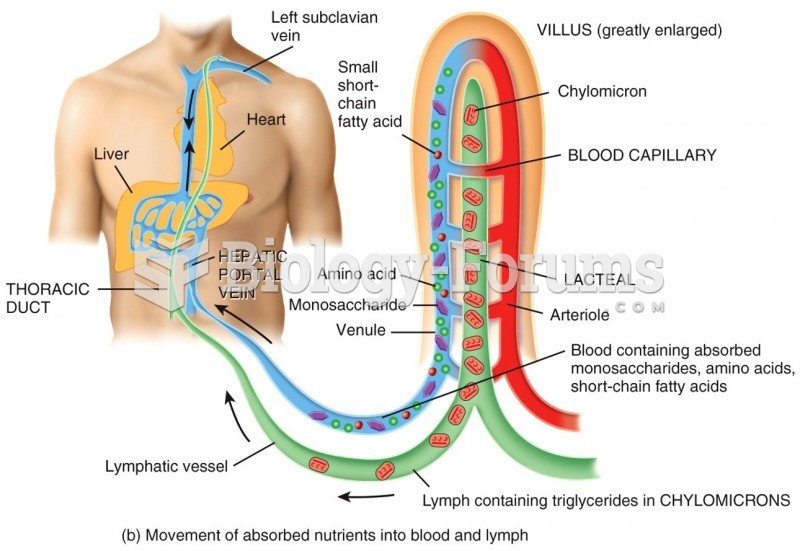|
|
|
Everyone has one nostril that is larger than the other.
In the United States, congenital cytomegalovirus causes one child to become disabled almost every hour. CMV is the leading preventable viral cause of development disability in newborns. These disabilities include hearing or vision loss, and cerebral palsy.
Chronic marijuana use can damage the white blood cells and reduce the immune system's ability to respond to disease by as much as 40%. Without a strong immune system, the body is vulnerable to all kinds of degenerative and infectious diseases.
GI conditions that will keep you out of the U.S. armed services include ulcers, varices, fistulas, esophagitis, gastritis, congenital abnormalities, inflammatory bowel disease, enteritis, colitis, proctitis, duodenal diverticula, malabsorption syndromes, hepatitis, cirrhosis, cysts, abscesses, pancreatitis, polyps, certain hemorrhoids, splenomegaly, hernias, recent abdominal surgery, GI bypass or stomach stapling, and artificial GI openings.
Pubic lice (crabs) are usually spread through sexual contact. You cannot catch them by using a public toilet.
 From your experiences in grade school, can you tell if or how your teachers unintentionally helped ...
From your experiences in grade school, can you tell if or how your teachers unintentionally helped ...
 Jostle the thigh, tossing from side to side, hand to hand. Causes loose, free movement in the hip ...
Jostle the thigh, tossing from side to side, hand to hand. Causes loose, free movement in the hip ...





